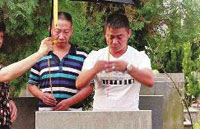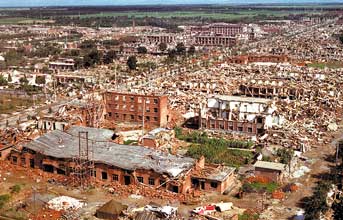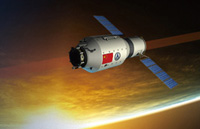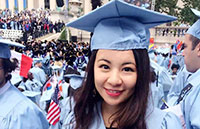Profile: Xi Jinping: Man of the people, statesman of vision
(Xinhua) Updated: 2012-12-24 10:11
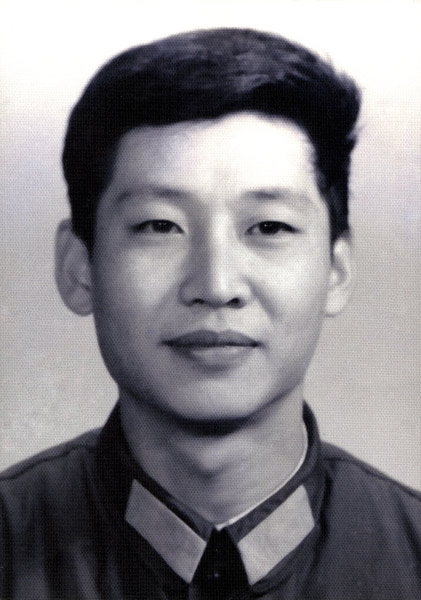 |
|
File photo taken in 1979 shows Xi Jinping, then working for the General Office of the Central Military Commission. (Xinhua) |
Advocate of China Dream
"The people's longing for a good life is what we are fighting for," Xi said in his first public speech as general secretary on Nov. 15.
Shortly after taking office, Xi and the other six members of the Standing Committee of the Political Bureau of the CPC Central Committee visited the exhibition "The Road Toward Renewal" at the National Museum of China. The comprehensive display illustrates the huge challenges China has surmounted on the road to national revival since 1840.
"Nowadays, everyone is talking about the China Dream," he said. "In my view, realizing the great renewal of the Chinese nation is the Chinese nation's greatest dream in modern history."
To achieve this sacred goal, Xi has clarified his positions on various aspects of the country's development:
On the country's economic development, Xi opposes a blind focus on growth and upholds the principle of scientific development, which seeks sustainability in terms of both resources and the environment.
On political development, he stresses the idea that all power belongs to the people, and calls for active and steady political reform while adhering to the path of socialism with Chinese characteristics. He also stresses the rule of law and exercising state power according to the Constitution.
On cultural development, he highlights developing human talent and fostering a Chinese national spirit, especially as typified by the words of the national anthem: "We will use our flesh and blood to build our new Great Wall."
On social development, he proposes continuous efforts to safeguard and improve people's lives through economic development. He also supports building a harmonious society and realizing a good life for the people based on hard work, while taking into consideration the country's practical circumstances.
On ecological progress, he emphasizes a national strategy of resource conservation and environmental protection and a sustainable pattern of development.
From the Loess Plateau to the southeast coast, from localities to the central leadership, Xi has had a well-rounded political career and has developed a deep understanding of the conditions of his country and people.
In 2007, he was promoted to the nine-member Standing Committee of the Political Bureau of the 17th CPC Central Committee, after working for decades in various locations, including Shanghai Municipality, the provinces of Shaanxi, Hebei, Fujian and Zhejiang, as well as serving the army.
He served concurrently as a member of the Secretariat of the CPC Central Committee and as president of the Party School of the CPC Central Committee. In 2008, he was elected the country's vice president.
Over the past five years, he has participated in the creation of major policies for the Party and the country, and has gained rich leadership experience in all respects.
During that time, Xi was in charge of Party affairs and attached great importance to Party building. He reiterated that the Party must police itself with strict standards as well as listen to the call of ordinary people.
Beginning in 2008, he worked intensively on the campaign to study and implement the Scientific Outlook on Development. The year-and-a-half campaign further made the Scientific Outlook on Development a consensus of the whole Party and country, and a driving force for economic and social development.
He also led a group of officials in drafting the 17th CPC Central Committee's report to the 18th CPC National Congress and the amendment to the CPC Constitution, which were adopted at the congress and have become important guidelines for China's future.
Xi has had a connection with the armed forces since his early days. After graduating from university, he worked at the General Office of the Central Military Commission (CMC) for three years, a job that deepened his affection for the army.
In the following years, he served concurrently as Party chief for military subareas in addition to holding his Party and government titles. He was familiarized with grassroots military affairs.
He became CMC vice-chairman in 2010 and was named CMC chairman at the first plenum of the 18th CPC Central Committee in November 2012.
Xi is also familiar with work related to Hong Kong, Macao and Taiwan. His 17 years in Fujian gave him a deep understanding of Taiwan and enterprises from Taiwan. The first Taiwan chamber of commerce on the mainland was established in Xiamen when he worked in Fujian. He solved many problems for Taiwan compatriots, and has been seen as a good friend by many of them.
As a top leader in charge of Hong Kong and Macao affairs, Xi helped work out a number of important policies on the long-term stability and prosperity of the two special administrative regions.
In 2008 and 2009 when Hong Kong and Macao were seriously hit by the international financial crisis, Xi visited the cities to show his support.
In 2008, Xi was also tasked with heading up preparations for the much-anticipated 2008 Olympic Games and the subsequent Paralympics, both in Beijing, playing a key role in China's hosting of these high-standard events with distinctive features.
- Drunk driving blamed for Taiwan bus accident
- Xi: Disaster relief must be improved
- China's push to improve output of research leads way
- Offer of extra time off work sparks a travel rush
- Heat wave poses serious health threat
- Unmanned metro to launch in 2017
- Party's promotional video goes viral online
- President tells the Army to improve
- US agrees it's time to 'turn the page'
- Guidelines encourage parents to provide better care



